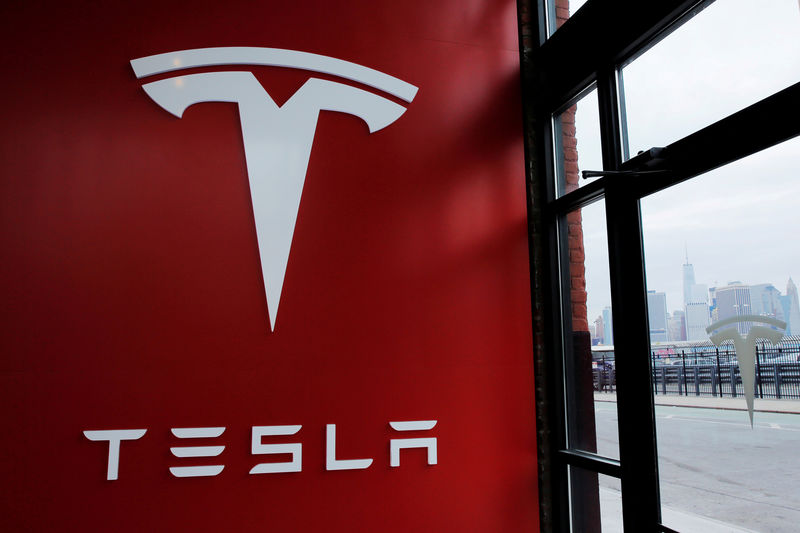By Vibhuti Sharma
(Reuters) - A bigger-than-expected drop in Tesla (NASDAQ:TSLA) Inc deliveries spooked stock and bond investors, raising concern about the electric-car maker's ability to make money as Chief Executive Elon Musk headed into another legal tussle with regulators on Thursday.
The company's shares fell 8.7 percent, with four Wall Street brokerages cutting their price targets on the stock after deliveries of Tesla's higher-priced luxury cars - Model S and X - more than halved in the first quarter.
The implications of slowing deliveries on cash flow for a company saddled with billions of dollars in debt rattled bond investors, pushing the price of its $1.8 billion junk bond down by the most in seven months.
RBC analysts called Model S/X deliveries "very disappointing" and estimated the numbers would translate to a more than $1 billion shortfall in revenue compared to previous estimates.
The company had flagged in February that it expected to post a first-quarter loss as it launched its cheaper $35,000 version of the Model 3 sedan.
Musk, who is under pressure to deliver Model 3 to new international markets efficiently, has been engaged in a public disagreement with U.S. regulators stemming from his tweets about Tesla's production estimates.
His lawyers will argue on Thursday that he did not violate a fraud settlement with the U.S. SEC and should not be held in contempt, the latest twist in a high-profile battle between the billionaire and the government. [nL1N21L0WY]
"With Musk due in court to face the SEC imminently, Tesla remains one of the most absorbing companies we cover, and one which for good or ill, never ceases to surprise," Hargreaves Lansdown (LON:HRGV) analyst Nicholas Hyett said before a Manhattan federal court hearing.
Musk's fight with the SEC has raised investor worries that it could lead to restrictions on his activities or even his removal from Tesla, while distracting him at a pivotal point in the company's expansion.
In the quarter, Tesla delivered 50,900 Model 3s, the linchpin of its growth strategy, falling short of analysts' estimate of 58,900, according to IBES data from Refinitiv.
Tesla also pinned the blame for the first-quarter delivery drop to longer transit times, which analysts said could impact cash flow, even though the company claimed it had sufficient cash on hand.
The company said it had delivered only half of the quarter's numbers by March 21, with 10,600 vehicles still in transit at the end of the quarter. By comparison, only 1,900 vehicles were in transit at the end of the fourth quarter.
Cowen and Co analysts said that the delivery and transit details suggested "cash was likely dangerously low" after Tesla paid off a $920 million convertible bond obligation in cash in the beginning of March.
Still, there were no new downgrades by brokerages on Tesla shares. The company is rated "buy" or higher by 12 of the 30 brokerages covering the company, seven "hold" and 11 "sell" or lower.
The carmaker reaffirmed its forecast to deliver 360,000 to 400,000 vehicles this year, and said U.S. orders for the new Model 3 outpaced what the company was able to fulfill in the quarter.
Nord LB analyst Frank Schwope called the numbers "more shocking than disappointing" and said there remain doubts whether Tesla could deliver 400,000 cars this year.
Tesla is rated six notches into noninvestment grade, or junk bond, territory by both Moody's Investors Service and S&P Global (NYSE:SPGI) Ratings. Both rating agencies have a negative outlook on the company's debt.

The bond's yield spread, the measure of additional compensation demanded by investors to own the security rather than safe-haven U.S. Treasuries, widened by 50 basis points.